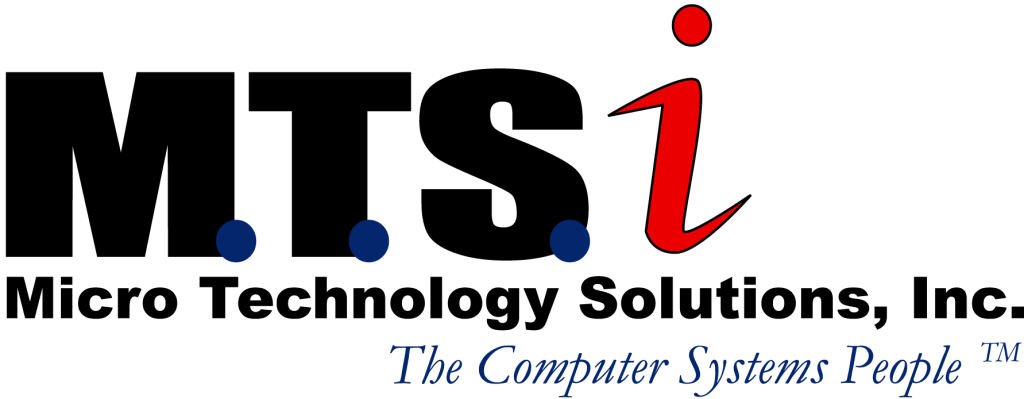One of the most difficult hires for business leaders is the role of IT Director. An excellent IT Director has a combination of technical experience, soft skills, and business acumen. The struggle for many business leaders is that IT is a discipline unto itself and for many it is difficult to determine if a candidate has the technology skills required to lead their team forward. That is why we created this guide to help you navigate the process and come out with an IT Director that suits your organization.
Define the skill requirements of the position.
The level of technical skill you need in your IT Director will vary greatly depending upon how complex your technology environment is and whether or not you work with outside firms to build and maintain your network.
In some organizations, infrastructure projects, cyber security, and other technology initiatives are hired out to a Managed Service Provider like MTSi. In other organizations, IT leadership comes primarily from the IT Director. It is critical to understand if you are filling the role of an IT Liaison with budgeting and negotiating skills, or a hands-on technical leader and mentor.
Consider the following questions before interviewing:
· Are your servers in the cloud or one small closet on-premise?
· Do you partner with an MSP to implement new technologies?
· Who solves your organization’s complex technical problems?
· Who is responsible for your IT Roadmap?
· Who teaches junior team members how to be proficient?
· Who creates and implements IT policy?
· Does your team develop its own software applications in house?
One problem we frequently come across is articulate, non-technical candidates being chosen for a role that requires hands-on skills that they do not have. The result is often turnover in IT support staff that exacerbates the lack of technical skill inside the team. Understanding the nature of the role you are hiring for can help an organization avoid this problem.
Understand Your Current Technology Stack.
Every organization has technology in place to support the mission. A key question to ask when bringing in a new IT Director is whether the current technology stack fits the organization going forward. If the technology stack is outdated, hiring an IT Director with skills in existing products may be a handicap. This is especially true if the remainder of your team lacks experience with newer technologies. It may be better to seek candidates ready to lead you through the upgrade process.
A key challenge for non-technical leaders comes when your new IT Director tells you that the technology you have deployed needs to be replaced. If your technology stack is starting to age, engage a firm to evaluate and make recommendations beforehand. This may fuel discussions in your
interviews and help you choose an IT Director knowledgeable about replacement
technologies. Sometimes firms hire a candidate with no knowledge of their
current technology stack and this prompts the new hire to recommend replacement of the current equipment with devices they are familiar with. This costly mistake can be avoided by seeking outside advice.
Consider the following when developing a job description:
· Which technologies are critical to your organization? (Server operating systems, virtualization, cyber security, etc.)
· How long have these technologies been in place and where are they in their lifecycle?
· What is the IT Director’s role in supporting these?
· Who will recommend changes, upgrades, etc.?
· How much hands-on experience is right for an IT leader in your organization?
Identify Soft Skill Requirements.
Whether you are considering promoting from within, or searching for external candidates, you may identify a strong technical candidate with limited soft skills. As business leaders, you are already practiced at evaluating soft skills. One particular concern from a technical perspective would be avoiding candidates with limited experience that may struggle with decision making and problem solving. These candidates are likely to underestimate the complexities of introducing new technologies and may also struggle building connections with other departments to identify solutions that drive the business forward. On the other hand, candidates with limited soft skills may succeed managing within organizations experiencing very little change.
Consider the following in relation to soft skills:
· What is the pace of change in your organization?
· Will the IT Director be called upon to help solve business problems with technology?
· How large is your IT team and how important is mentoring and leadership?
· Does the candidate have sufficient experience to grasp the realities of proposed projects?
· How critical is budgeting accuracy and is guidance available to the new IT Director?
The Interview.
If you have identified technical proficiency as important in your next IT Director and it is likely they will be leading major upgrades to your environment, it is highly recommended to engage someone with technical experience to provide perspective by asking specific, technical questions. If you currently work with MTSi, we are a natural choice to help validate candidates that you are considering moving forward with because we understand the technologies in your environment.
If you are moving forward with interviews on your own and are concerned that you won’t be able to tell a guru from someone trying to fake it until they make it, the following interview topics may help:
· Choose a key product from your technology stack and ask your candidate about the most complex project they have implemented related to that product.
o Ask plenty of follow up questions.
o What were the biggest stumbling blocks for you?
o How did you overcome?
o Was the project a success?
o What were the key outcomes?
o How long did the project take?
o Ask for peer references from the same firm and ask about project roles and outcomes.
o Listen to understand the role your candidate actually played in the project.
· Ask about products in your technology stack. Share the recommendations from your MSP and ask for the candidate’s recommended approach. Specificity is your friend here. A non-technical candidate will have an opinion on a multitude of
subjects, but will not be able to give concrete reasons why product A is better
than B.
· What is the candidate hoping to gain from this role? Is it a step forward?
· Ask about certifications related to technologies you use. Ask for documentation.
· What was the most difficult technical problem you have solved?
o Ask plenty of follow up questions. The problem-solving process should be very clear.
o Who worked with them on this?
· How many different environments did they work in? How many projects have they been involved with? A technical person who works for a consulting firm like MTSi, will be tasked with many projects and must learn to adapt to new technologies. A technician supporting a single environment over a long period will have significantly less exposure to new technologies. While it is attractive to hire a candidate that has been with a firm for many years, being in a single environment limits opportunities for technical growth, especially if there is limited change.
· A strong technical person will be able to communicate in a way that is easy to understand. They will be able to offer specific examples comparing one sort of problem or project to another. They are also a great source of ideas if you are considering upgrading your current technology stack.
At the end of this process, if you still aren’t sure which candidate will be able to best support your environment, reach us here at MTSi for help. In the long run this is much less expensive than hiring the wrong candidate!

